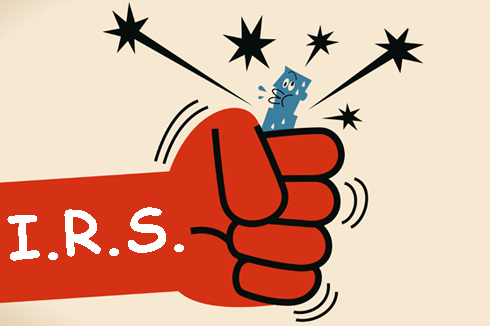The Most Common IRS scams
- The official IRS site ends in .gov, not .com.
- The IRS does not send unsolicited emails about personal tax matters.
- Report suspicious emails to the IRS.
- Start your FREE debt assessment
Be aware of common scams that try to take advantage of you, by impersonating the IRS
Every year, during the tax filing season, the number of scams associated with the IRS rises. Often, these scams are designed to trick taxpayers into thinking that it is the IRS who is contacting them, seeking important, personal information, when it is not the IRS who is contacting the taxpayer, but the scammer.
The IRS never sends taxpayers unsolicited emails about their personal tax matters; they do NOT initiate any communications with taxpayers via email. As the IRS Web site states, " If you receive such an e-mail, most likely it's a scam." If you receive an email about your personal tax account, from what purports to be the IRS representative, do not divulge any private information, such as your social security or bank account numbers. The scammer is only trying to find a way to access your account or to steal your identity.
Scammers may try to reach taxpayers through various means, not just through email. There have been attempts to take advantage of taxpayers by phone calls, faxes, fake Internet sites, and through social networking sites, though email contact is the most common.
One type of email scam contains either a link to click on or an attachment to download. A taxpayer who clicks on the link or downloads the file may either infect his or her computer with a virus or be directed to a site that falsely appears to be the actual IRS Web site. The official IRS Web site is www.IRS.gov; You are not accessing the official site, unless you are at www.irs.gov. There is never a .com at the end of an official IRS Web page.
Some impersonations may be commercial Internet sites that consumers unknowingly visit, thinking they're accessing the genuine IRS Web site, IRS.gov. However, such sites have no connection to the IRS.
Another scam the IRS warns taxpayers to be aware of involves the Electronic Federal Tax Payment System (EFTPS). This scam involves an email that arrives informing the taxpayer that the his or her tax payment was rejected and directs the taxpayer to contact the IRS by clicking on a link for more information. If the taxpayer visits the site, his or her computer will be infected.
The IRS directs anyone who receives an unsolicited email from what appears to be the IRS or the EFTPS to report this to the IRS, by forwarding the bogus email to the IRS at phishing@irs.gov.
The IRS Web site contains further information about scams and what to do you if you are contacted or taken advantage of by a scammer. You can review additional resources at various IRS pages at the official IRS site, including: the Problem Alerts page, Suspicious e-Mails and Identity Theft and How to Report and Identify Phishing, E-mail Scams and Bogus IRS Web Sites.
Free up cash each month with Freedom Debt Relief

Ozzy S., Freedom client
“Right away, I had more money each month because of program costs so much less than what I was paying on my minimums.”
Actual client of Freedom Debt Relief. Client’s endorsement is a paid testimonial. Individual results are not typical and will vary.

